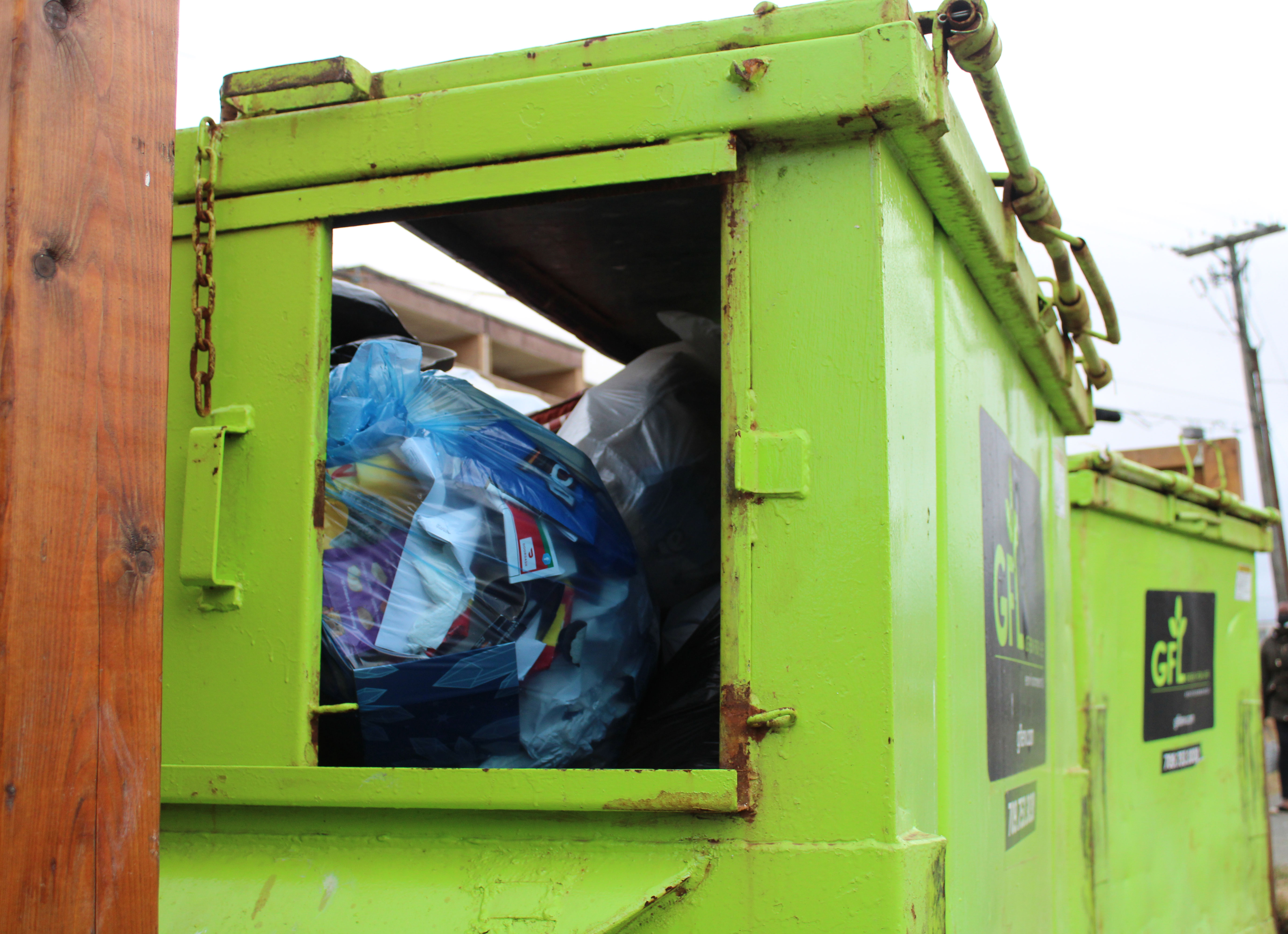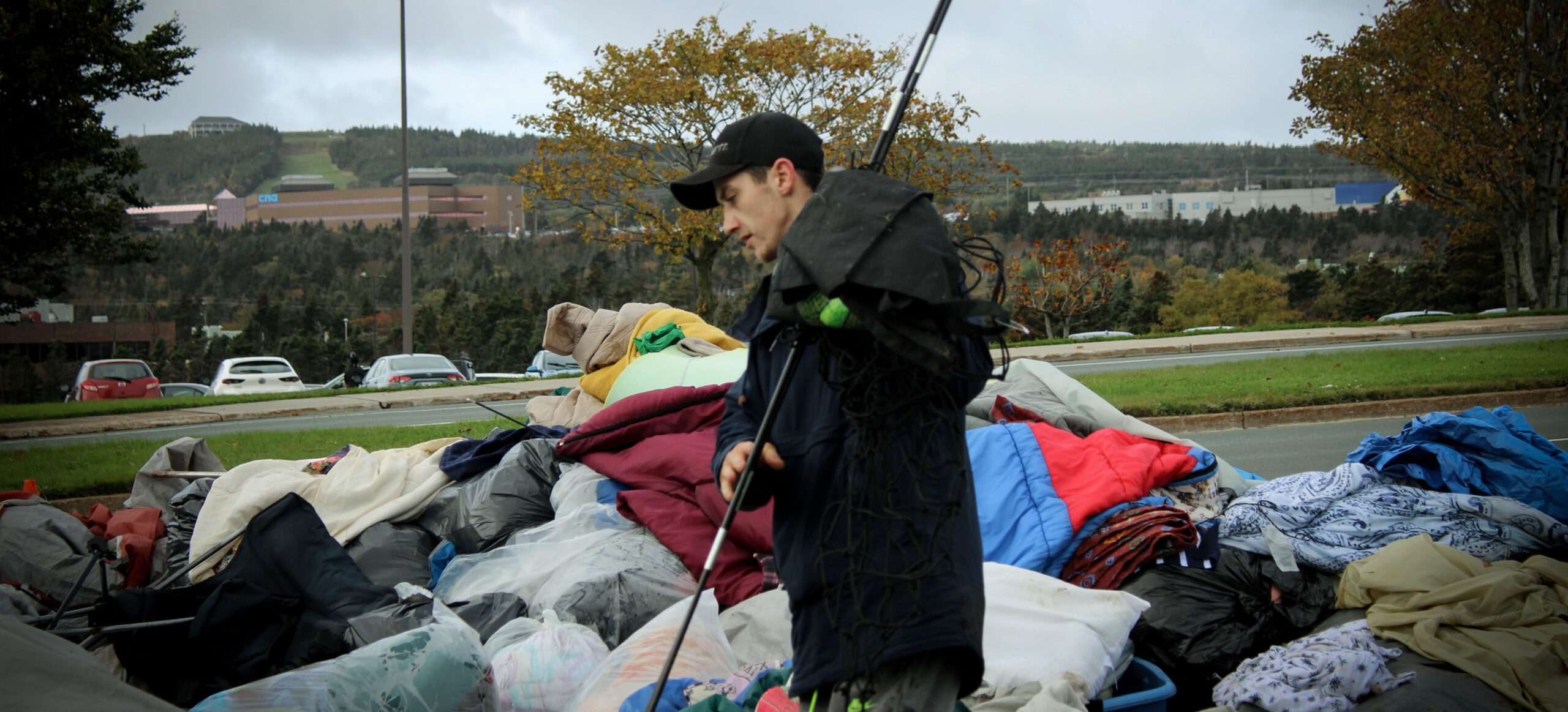The three R’s- reduce, reuse and recycle – are far from priority for post-secondary schools.
Ariyana Gomes
Kicker

Despite having one of the largest student bodies in the province, College of the North Atlantic’s Prince Philip Drive campus does not have an effective recycling or composting program in place.
Victoria Hodder, one of the campus directors of CNA, said she recognizes the lack of effective recycling opportunities throughout the campus can be significant to the overall waste management in the city.
“Unfortunately, due to the pandemic, we lost affiliation with (the) Vera Perlin (Society), who collected our recyclables, so, right now, the volume of waste is too much to deal with at once, but it shouldn’t stop individuals from recycling their daily-use items,” said Hodder.
The campus has approximately 5,000 students every semester who are actively using facilities such as classrooms, copy rooms, the cafeteria and more.
Hodder also mentioned that the college has partnered with Enactus, a student group that will soon be working on implementing recycling practices throughout the campus; however, its startup date is uncertain.
In its 2015-2016 report, the Department of Environment of Newfoundland and Labrador concluded that 60 per cent of the province’s solid waste comes from ICI (institutional, commercial and industrial) sites, which include schools and colleges. In its proposal for the Newfoundland and Labrador Waste Management Strategy, the department aimed towards a waste diversion goal, which is how the three Rs – reduce, reuse and recycle – started playing a pivotal role.
So, how can you adopt composting habits without appropriate knowledge and resources?
Julia Canning, the marketing and public education officer with the Multi-Materials Stewardship Board (MMSB), says her organization provides one-on-one information sessions to students, schools, businesses and anybody who is interested in learning and practising effective waste management, even at the smallest scale.
“We assess schools and colleges’ waste generation through audits and provide extensive help when requested,” said Canning. “Sometimes government funds are also available to install recycling equipment, but we rarely hear from post-secondary schools.”
She adds that schools put more focus on educating younger students, particularly from K-12, about environmental awareness, even though it should always be a relevant dialogue for everyone.
Canning said the MMSB has recently established Rethink Waste NL, which gives simple and effective suggestions to apply in schools. It advises that schools
- Collect recyclables in their classrooms
- Start a class vermicompost bin
- Place a beverage container recycling bin in each room including in the cafeteria
- Organize a school-wide composting program
- Conduct a waste audit to find out how much waste is generated
- Have a “green day” at school
- Start an environmental group at school
“. . . (I)t’s very important that we recognize the problem waste mismanagement creates,” Canning said. “Public education and awareness are crucial to sustainable practices.”
In the past five years, Canning said, the province has seen significant growth toward its waste diversion plan, but there is a lot more to be done.
She also says that even though the college does not have a strategic plan for sustainable recycling yet, it plans to install EV (Electrical Vehicle) chargers on many of its campuses.
“As one of the biggest schools here in the province, I know we can do better and set a good example for our students,” said Hodder.
Ariyana Gomes is a journalist and assistant producer of weekly broadcast with Kicker News. She enjoys cooking Bangladeshi traditional, spicy food in her spare time and watching food vlogs as she devours her delicacies.




Be the first to comment